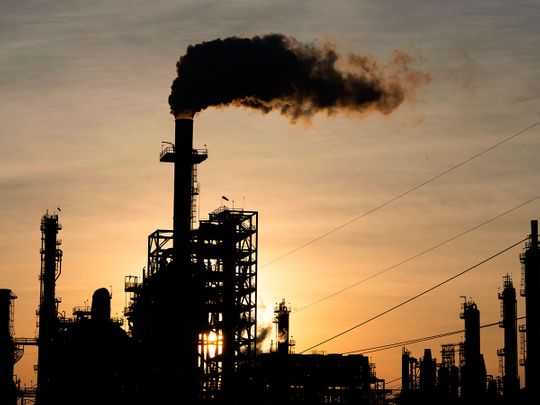
Dubai: Oil headed for a substantial weekly gain as Russia said it may cut crude production in response to the price cap imposed by the Group of Seven on its exports, highlighting risks to global supplies in the new year.
West Texas Intermediate climbed above $78 a barrel, set for a gain of more than 5 per cent this week even as concern flared over near-term demand in China and US data reinforced prospects for more rate hikes. Russian may reduce output by 500,000 to 700,000 barrels a day in response to the cap, Deputy Prime Minister Alexander Novak said, according to the state-run Tass news service.
Oil has rebounded since hitting a one-year low earlier this month despite concerns that the US and Europe may sink into recession next year. As the war in Ukraine grinds on, traders have been waiting for Moscow’s full response to the cap, a policy that imposed a $60-a-barrel ceiling on Russian flows in a bid to reduce its income while keeping exports on the market. President Vladimir Putin said on Thursday that he would sign a decree on the nation’s reaction to the limit on Monday or Tuesday containing “preventive measures” .
There are early signs the cap may be impeding flows, an impact that runs counter to its stated aims. In the first full week after the limit came into effect on December 5 “- in tandem with a European Union ban on seaborne Russian imports and curbs on insurance “- total volumes shipped from the nation sank by 54 per cent.
While China’s rapid shift from Covid Zero has bolstered the demand outlook next year, the swift shedding of curbs has been disruptive. With cases spiking, several measures of mobility including traffic congestion in major cities, subway usage and the number of domestic flights have slumped.
In the US, data this week showed a drop in commercial crude inventories, with nationwide holdings at their lowest level for this time of year since 2014. In addition, traders are watching for any fallout for energy markets from a vicious winter storm that’s pummeling parts of the country.
The prompt time spread in WTI futures was 13 cents a barrel in backwardation, a bullish pattern in which near-term prices are higher than later-dated ones. A week ago, it was 17 cents a barrel in an opposite bearish contango.












